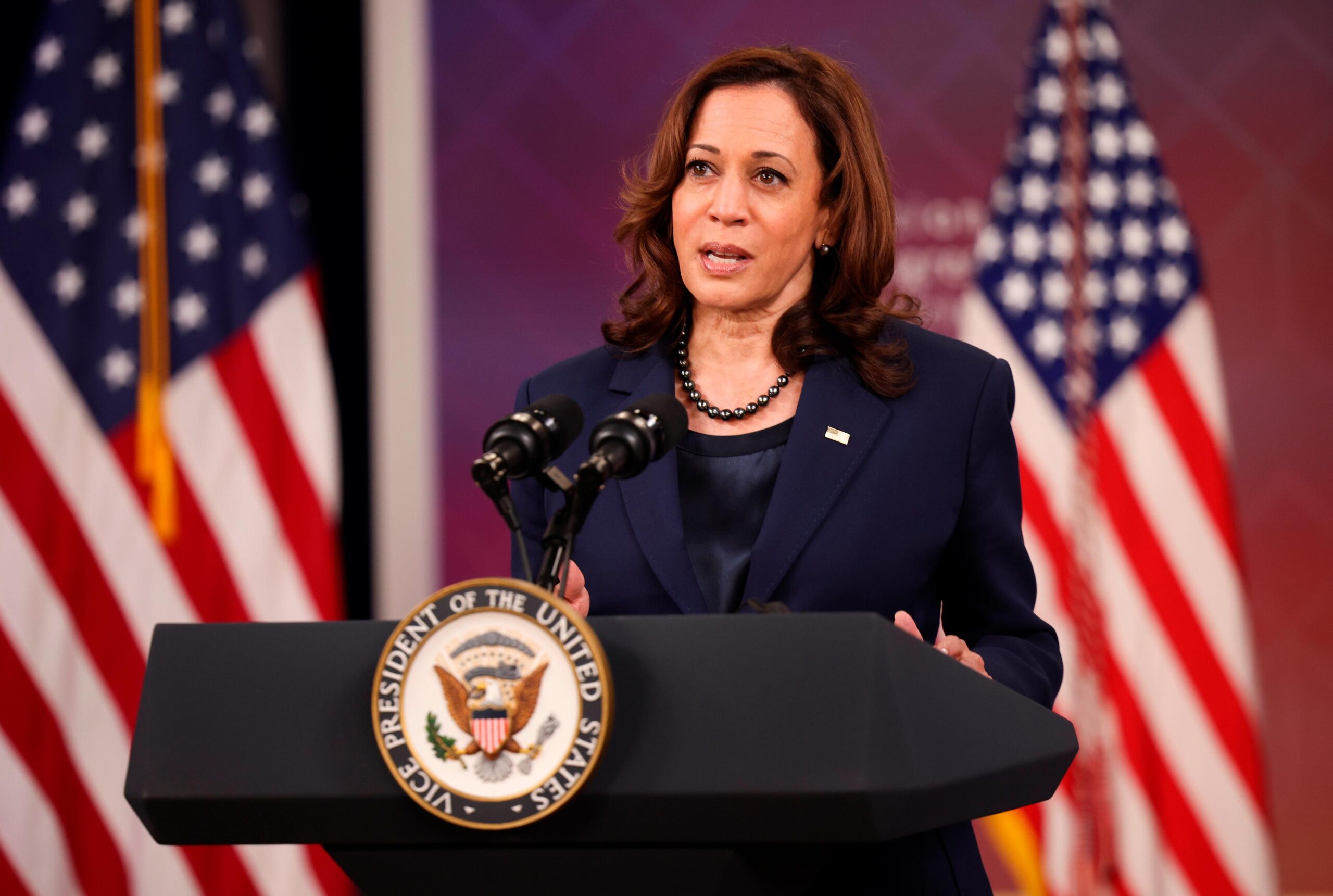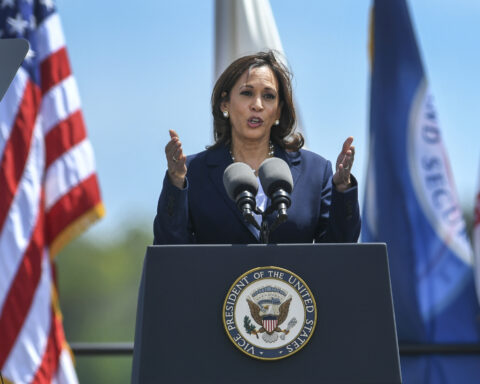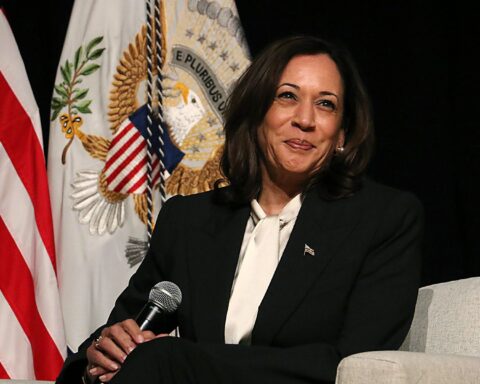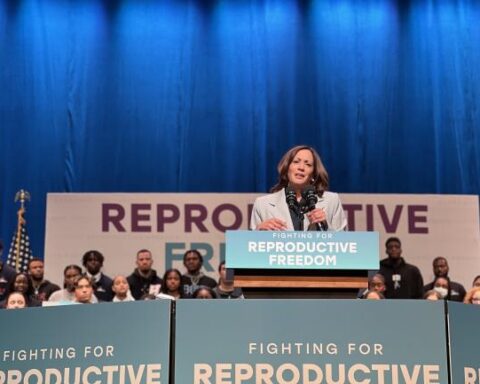Vice President Kamala Harris on Monday announced a new slate of commitments from the private sector to invest in the Northern Triangle, senior White House officials say, marking the administration’s latest attempt to address the root causes of migration from the region by promoting economic opportunity.
The announcement follows an initial agreement, dubbed a “Call to Action,” released in May, that detailed $750 million in commitments from major companies like Microsoft, Mastercard, Chobani, Duolingo, Nespresso, Bancolombia and Davivienda.
In response to the months-old call, Nespresso is now working with over 1,200 farmers in the region, according to a White House fact sheet, and is sourcing coffees from farms in Honduras and El Salvador for the first time in the company’s history. Mastercard will announce a new memorandum of understanding with Guatemala’s government in an effort to eventually provide digital banking to the region. And Microsoft will announce it has expanded internet access to more than 1 million people in Honduras, including indigenous communities, as part of its pledge to expand internet access to as many as 3 million people in the region by July 2022.
For completely new commitments that will raise the total number of investments from $750 million to $1.2 billion for the region, Parkdale Mills will announce it intends to invest $150 million to build a new yarn spinning facility in Honduras, PepsiCo will announce $190 million of investments in northern Central America through 2025, and Cargill will invest an additional $150 million over the next five years “with the intention of improving farmer livelihoods and building economic resilience in Honduras, Guatemala, and El Salvador,” according to the fact sheet.
One senior official said White House staff and federal agencies have made “dramatic progress” in laying down foundational work in the region that was neglected by the Trump administration. The aide credited Harris’ “vision” and “strategic approach” for making the gains possible.
“The vice president is committed to this project, not simply because it’s something that the President asked her to do, although that’s very important,” the official told reporters in a briefing call. “But that this region is our neighborhood. These people are our closest neighbors and partners. We want to do the right thing for root causes, but also as part of a broad approach to migration.”
Harris will announce the commitments in a joint event Monday, convened by the State Department, the US Chamber of Commerce and the Partnership for Central America, to support investment in the region and attended by multiple CEOs as she continues to try to leverage private sector influence as part of the administration’s strategy for the Northern Triangle, particularly in aiding economic concerns in the region.
“These private sector commitments touch on a range of strategic priorities in the region, including things like digital inclusion, climate smart agriculture, workforce development, gender equity and opportunity and supply chain resilience,” a second official said. “And all of this showing the momentum and progress that the vice president feels is necessary for the private sector to go hand in hand with the comprehensive efforts of the US government.”
In March, during an influx of unaccompanied migrant children, President Joe Biden tasked Harris with overseeing diplomatic efforts with the Northern Triangle. Most minors apprehended on the US southern border are from El Salvador, Guatemala, and Honduras — a region where major hurricanes and the coronavirus pandemic took a devastating toll. Harris has faced ongoing criticism for not being assertive enough on the US-Mexico border, despite aides and Harris herself emphasizing that she does not manage the southern border.
In July, the administration later revealed a 20-page root causes strategy that outlined the administration’s approach to improving conditions and creating opportunity in the region by addressing economic insecurity and inequality, combating corruption, promoting respect for human rights, countering and preventing violence, and tackling sexual, gender-based and domestic violence.
Experts have told CNN those actions are important to improving conditions on the ground over time but argue that to achieve sustainability, some level of government buy-in will be necessary. And that can be complicated by the systemic issues plaguing Central American governments.
In El Salvador, there’s concern about limiting checks and balances in government, while in Honduras, where the outgoing president has been implicated in a drug trafficking case, there’s greater concern about corruption within government. And in Guatemala, there are also concerns about government corruption, though early on the vice president’s office identified the country as their primary liaison to the region.
Harris spoke to Honduras’ President-elect Xiomara Castro on Friday, according to a readout distributed by the vice president’s office, marking the first time Harris has spoken to a leader of that country since her assignment began in March. All other communication between countries happened on various other government levels.
Officials say Castro’s history-making election as the first woman in that role, as well as her interest in fighting corruption and growing the economy of Honduras, creates an “exciting agenda” for Harris to collaborate. But officials did not answer whether Harris has spoken with the leader of El Salvador or planned to in the future.
Still, senior officials told reporters that the investments from private companies and federal government are being monitored “extremely closely,” at the direction of Harris, to limit corruption and waste.
“We’ve also been very clear with the governments: in order to make these work, you’re going to have to implement certain elements of reform. Whether that’s on the tax regulation, whether it’s how shipping has been done, but there are a variety of things that we’ve said, ‘Look, if you want to maximize the benefit here and you want other foreign companies to follow these, here are the steps that need to be taken,'” the official said.
“And we are working very closely with the governments, the parliaments and a variety of civil society organizations to make sure that we’re building that out.”







